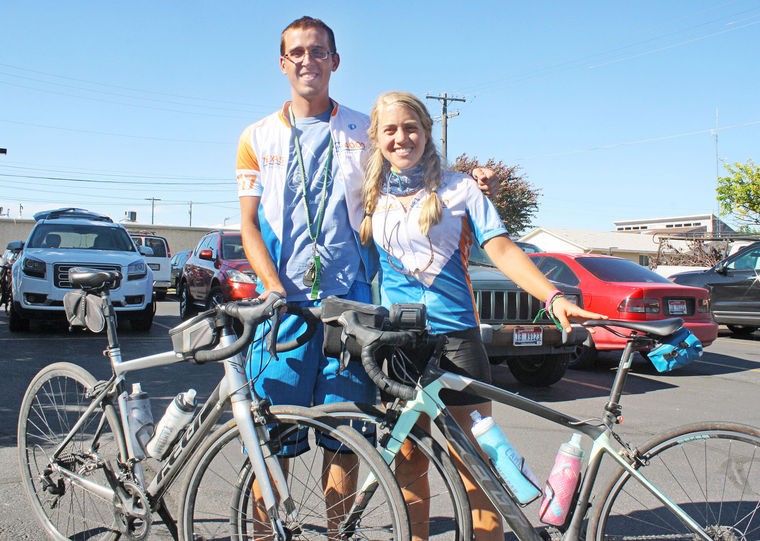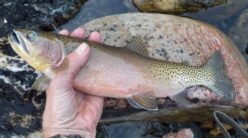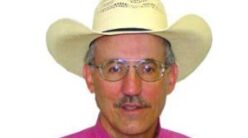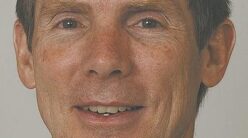Kristopher Novak said his family has had its share of cancer scares.
When his mother was 55, doctors discovered precancerous polyps while she was undergoing a colonoscopy. His stepfather had a similar incident occur when he was 35 years old. In both cases, doctors quickly removed the polyps.
Later on, his stepfather had to have a large portion of his nose removed after a suspicious-looking mole turned out to be cancerous. His nose was later reconstructed through plastic surgery using skin from his cheek.
Novak’s uncle has been treated for early-stage melanomas multiple times, while his grandfather was once diagnosed with Stage 1 prostate cancer.
Luckily, Novak’s family members who have had brushes with the “Big C” were able to receive medical treatment before it claimed their lives.
“The way I see it, I just have a great gratitude for people who have fought against cancer in the past,” he said. “My family can live a normal life today thanks to this preventative technology.”
This gratitude is what drove Novak, a senior electrical engineering student at the University of Texas, to participate in the Texas 4000, a grueling 70-day, 4,000-mile bike ride.
Beginning in Austin, Texas, and ending in Anchorage, Alaska, it is the longest annual charity bike ride in the world.
The trek has been held every summer since 2004 to raise money for cancer research. This year, the 70 participants have already raised more than $665,000. The goal is to reach $750,000 by the time they all pedal into Alaska’s largest city later this summer.
The 70 cyclists are broken up into three groups, with each team taking a different route to Anchorage.
The 25 participants taking the Rockies Route made a stop at Barrie’s Ski and Sports on Tuesday afternoon, where they were greeted with food and hosts who gave them a place to stay for the night. The previous day’s stop was in Logan, Utah.
Like Novak, all of the Texas 4000 cyclists who visited Pocatello this week have been affected by cancer in some way.
While growing up, Annabeth Bosworth, a nursing student at the University of Texas, said the fathers of three of her closest friends died of the disease.
“It was really heartbreaking,” she said. “People that young shouldn’t have to deal with such heavy matters. My friends matured really fast after that.”
The local host families who gave the Texas 4000 cyclists a place to stay for the night were employees of Barrie’s Ski and Sports. They said their houseguests’ efforts to rid the world of cancer were awe-inspiring.
Katie Nelson, the event coordinator at Barrie’s, said one of the cyclists told a story about donating bone marrow to a 9-year-old boy who was stricken with a rare form of leukemia.
“I can’t say enough good things about them,” Nelson said. “They are just so positive.”
Ironically, Novak said that before taking on the physically demanding bike ride through North America, most of the participants were, at best, casual cyclists.
“Most of us had never ridden five or six miles at one time,” Novak said.
Novak said the group received their carbon fiber road bikes last October and began an intense training regimen soon afterwards. This regimen included progressively harder and harder climbs.
Eventually, the participants had to successfully complete a century test, in which they had to prove their mettle by biking 100 miles in 10 hours while climbing 6,500 feet.
“Every person who rode the century test passed,” Novak said.
To participate in the Texas 4000, each rider has to raise $4,500 before hitting the road. These funds were raised through a variety of sources, including sponsorships from companies, individual donations and fundraisers. One participant even held a concert in their backyard to meet the financial requirements.
The fundraising continues throughout the ride every time they arrive in a new town.
By the time the cyclists made their way into Pocatello, they had already logged more than 1,700 miles through six states in 25 days. Novak said they have pedaled up seemingly never-ending mountains, battled hordes of mosquitoes and dealt with some incredibly difficult weather conditions.
Though the group is looking forward to visiting Yellowstone and Glacier national parks in the coming days, the route will not get any easier.
Soon they will be in Canada, where they will trek through Alberta, British Columbia and the Yukon Territory before they enter Alaska. In terms of total mileage, the group has not even reached the journey’s halfway point yet.
However, their spirits haven’t waned because they know this undertaking is for a cause bigger than themselves — to find a cure for cancer.
“Some had saddle sores and were really hurting from the ride,” Nelson said. “But we got the impression that they weren’t doing this for themselves. They knew they were doing this for a bigger cause.”
On Wednesday morning, the Texas 4000 team banded together in a circle to determine who they were going to dedicate the day’s ride to. Each day’s ride is dedicated to somebody affected by cancer, whether it’s a family member, friend or somebody they met during their 70-day journey.
Then they began the journey to their next stop in Idaho Falls. Some of the employees with Barrie’s Ski and Sports even rode with them part of the way.



